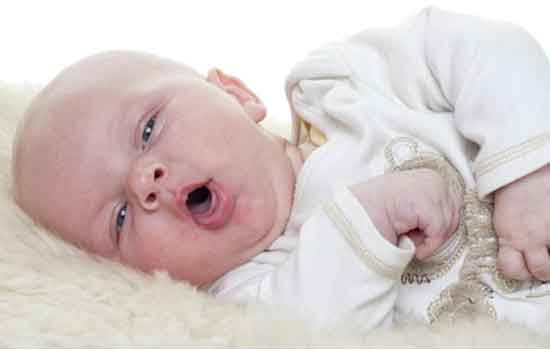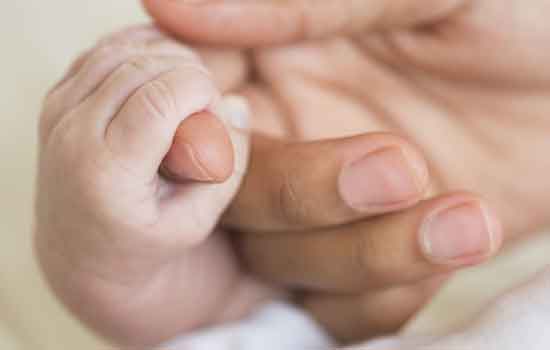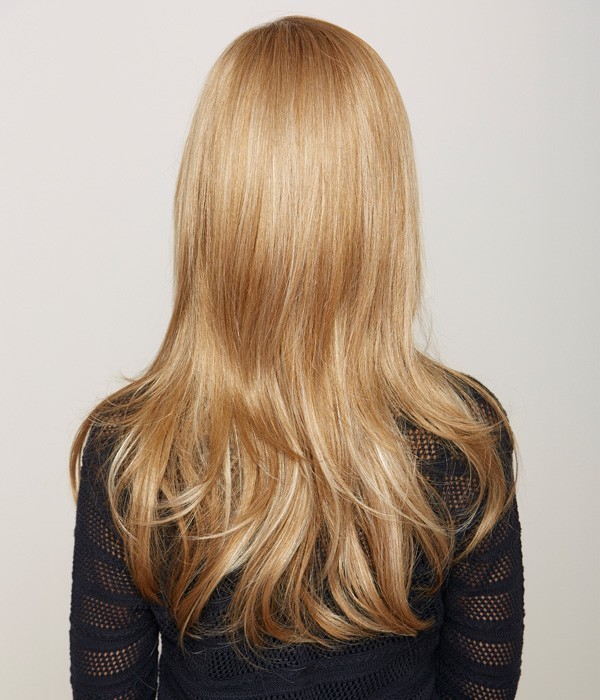Cough in babies

Baby time is a special memory for most of us. But for various reasons, the experience does come with lots of issues that need attention and caution. Night-time cough is one of them. This may be stressing at first as no parent loves to see their little one in distress, especially during the night. Nighttime cough in babies is regular and the symptoms may not be too serious but can lead to various issues later point of time.
We may think of it as a major issue, but the cough in babies is a procedure of defense from the body against the respiratory tract illness. Various tract infections cause the mucus to secrete into the airways which are a part of the response to the infection. Cough is actually causing your baby to clear the mucus from the respiratory tract.
Needless to say, coughing at night means you need to take action against the infection.
In infants that have crossed the age of 3 months, running nose is not a major issue. This happens as the nasal area becomes a bit congested. Also, the baby’s immunity system is not strong enough to deal with various types ofallergic reaction that affects his airways. The system is sensitive and the baby can easily develop symptoms from an allergy.
Keeping your house cough-free
One might think why and how the cough in babies develops even if the baby stays at home. This is common as many elements or allergens may cause an interruption in the airways of your baby. Hence, it is important to keep your house allergy-free to prevent coughing at night. The first thing you need to do is to check for any molds in ceilings or edges. Molds may go unnoticed and the harmful bacteria can enter into the nose easily and cause various types of allergies. You need to look for signs of mold such as feeling cold near walls, coughing in closed rooms, the allergic reaction on the skin and so on.
The next part is to keep all chemicals away and secured in closed cabinets. These being volatile, can travel through the air and cause nose coughs. You may look forward to removing products such as thinners, paints, primers, dish detergents, cloth detergents, shampoos, perfumes, deodorants, nail paint removers, etc.
For making your home free from allergens, make sure that it has no dust accumulation. You should get the house cleaned regularly. And once in a week always take make that extra little effort to remove dust from corners and edges such as ceilings and behind the furniture. Also, do make it a point to remove cobwebs from the house.
See if there is someone sick or allergic in the house
The body’s metabolism of a baby is very delicate. This means that he can get sick from a sick person very easily. And since cold and cough symptoms are contagious, the risk becomes more if there is someone already having these issues in the house. Often at times, the cuteness of our baby makes us forget that we are infected.
A tiny cough usually doesn’t stop us from picking up, playing with or kissing our little one. But this could harm in ways we did not imagine. Runny nose or sneezing can transfer the allergic bacteria from air into our child’s respiratory system. This can cause nighttime coughing. Hence, it is always important to stay away from a baby if you are having the symptoms of cold or cough. Asking anyone having the same to keep a distance from the baby is never a bad idea.
Adverse room conditions in the room at night
Nighttime cough is common but they do indicate that there is something wrong. Continuous nighttime cough can be harmful and if your baby is coughing continuously for many days he can develop allergies that are hard to go away. Also, coughing causes strong movements of the chest which can lead to pain in the muscles. The reason might be in your room. Here are a few room factors that might cause nighttime coughing:
- Nighttime room temperature is below the average one- install a heater to counter this
- Mold or mildew growth near the wall where the baby is sleeping- get it treated professionally as soon as possible
- An open-air passage such as a window can cause sneezing at night
- Too much humid air can lead to coughing
- Too much moisture in the room can lead to coughing
- Uncomfortable sleeping position such as without any blankets or near a cold furniture
- Emission of smokes can cause coughing. If someone smokes near the baby, it can be harmful
Take note of hygiene
Various unhygienic conditions can lead to certain diseases in babies. And night time cough in babies is no exception. No matter if it’s related to you, your clothes, an area in the home or someone else in the house, hygiene does matter a lot.
To take proper precaution, make sure that you wash your clothes daily and shower daily to keep yourself free from germs, fresh and hydrated. Always use clean wipes and clothes for your baby. Towels should be washed and dried in a perfect manner. Keep a large bottle of sanitizer in the room so that you or anyone can use it prior to touching the baby.
Never put fingers or any foreign object in the baby’s mouths.

Always mop and sweep the floors daily to keep dust and germs away from the floor. Also, ensure that your baby’s skin is cleaned, hairs are free from dandruff and clothes are new and washed with good quality detergent.
Your baby should never sleep close to areas such as bathrooms or kitchens. These areas accumulate harmful bacteria which can hinder the smooth respiratory processes of the newly born.
Treating night time cough in babies
Let’s assume that your baby is into the problem and experiencing the night time cough. Though it may not be anything to worry about, you need to seriously take action to reduce the level of discomfort faced by your baby at night. While prevention is important, the cure is the next step in treating the diseases.
And it doesn’t mean that you should take your baby to pediatrician straight away, you can do things on your own that will reduce the cough and cold. Here is what we suggest you should do before paying fees for a physician:
- Check if the surrounding of the baby is clean and free from any mold or mildew growth
- Check the clothes and dressing of the baby and remove any wet piece of fabric
- Soothe the baby by giving him milk. Keep him hydrated all the time. Use any good moisturizer if required and give lots of warm fluids so that the baby gets the energy to fight the symptoms
- Check thoroughly the bedding position of the baby. If he feels discomfort, try raising the bed a little bit and see if coughing persists.
- Use a humidifier in the room
- Provide appropriate ventilation in the room to avoid coughing at night. Ventilation will also keep mildews, molds and dust away.
- You can try using a steamer as it will smooth the nasal congestion of the little one
- Use any over the counter cough balms that are safe for baby
When to see the doctor
After you have taken proper precautions and actions and still unable to treat the symptoms, it may be worth spending a visit to the doctor. This can be done if the problem persists for a week or so. Be prepared with questions and concerns that should be cleared with a pediatrician. Here are a few points that will help you decide when the right time to seek professional medical help is:
- A cough lasting for more than ten days
- Cough symptoms getting worse day by day instead of improving
- Cough from first few weeks of the birth
- If a child is unable to breastfeed
- If a child is facing difficulty breathing and facing discomfort during the night
- In case the skin of the child is becoming red in an unexpected manner
- If the baby shouts or cries without any reasons for long hours during the night
- If the baby is sweating at night
- When the baby is losing weight in an unexpected manner
- Labored breathing
- Dry or wet hacking cough
- Cough without wheezing
- Fast breathing during day time
Some additional tips
Preventing cough during night time is a part of taking a baby’s care in a proper manner. If you are aware of the cleanliness and feeding of the baby, these problems can fade away quickly. Here are some additional tips that may be followed to prevent cough and cold:
- Always keep your baby warm during winters. Use double layers of clothes and wrap him in soft blankets when you pick him up. He should never sleep without a comfortable bedding
- After the bath, do not delay putting on clothes. Put on furry and warm clothes as soon as possible. The baby can catch a cold if he is kept naked for a long period of time.
- Always use warm water during a bath or when cleaning the baby. It is also a good idea to use the wipes after soaking them in warm water
- Don’t skip the feeding and in fact, do it in a perfect manner with regular time intervals. Feeding in a good manner is an ideal way of keeping the baby hydrated and free from cough.
- Do not apply any cream or ointments near the nasal passage of the baby. The nasal passages should be kept clean as much as possible
- You can moisten the airways by using a cool-mist type of humidifier. This will reduce coughing that may be a result of post-nasal drip
- If possible, use the air purifier in the room so that the air being inhaled by the baby remains fresh and free from harmful allergens
- Keep the baby away from flowers or plants. These contain pollens that may result in the onset of coughing or sneezing.
Give lots of water diet to your babies such as juices and smoothies. Scientists believe that a decaffeinated warm team may help in easing out the symptoms that set off sneezing. Mind that you should not force if the child resists drinking. A cool Popsicle may act as a preferable substitute.
Before going to bed, offer a warm honey spoon to your baby. Honey is a natural anti-coughing remedy that can help in easing out the uncomfortable symptoms. Honey works by coating the throat and alleviate soreness. Take note that honey should be given only if your baby is above one year of age. You can also give various natural remedies including honey that are available over the counter.
As the last method, you can use medications. Tylenol and Ibuprofen may help comfort her if he has fever too along with a cough or if the sneezing or coughing worsens with time. Here again, these medications should not be given to too younger babies or newborns.
Nasal saline drops given in a regular manner may help in easing out the condition of a runny nose.
Conclusion
The treatment of nighttime cough in babies has three parts. The first one is to avoid the problem first hand before your baby develops the symptoms. This will include preventing your home from dust and allergies in an assuring manner. The second part is to do your best to improve or ease out the symptoms. This implies various steps you can take to help him get comfortable. You can apply various home remedies here and make the surroundings better to reduce the indications. The third part is to simply visit a doctor. This should be done if nothing works at all or if the problem is worsening day by day.
If you do not pay attention to the problem and believe that it is common, the condition of night time cough in babies can worsen with time.
Also, various children develop asthma due to normal coughing which makes a deep impact in the respiratory system later on in life.
The baby can also develop enlarged adenoids which hinder breathing. Older children might have sinusitis which is a type of bacterial infection emerging from the common cold. The signs can also indicate the onset of a respiratory syncytial virus. Hence, these reasons make it a sure thing to tend to the problem and if it continues to grow, to reach visit a registered child specialist as soon as possible.




/assets/images/provider/photos/2672875.jpg)

More Stories
Hairpiece Design That Defies Detection
CBD in the UK: Everything You Need to Know Before You Buy
Superficial Radiotherapy Explained: What Patients Need to Know